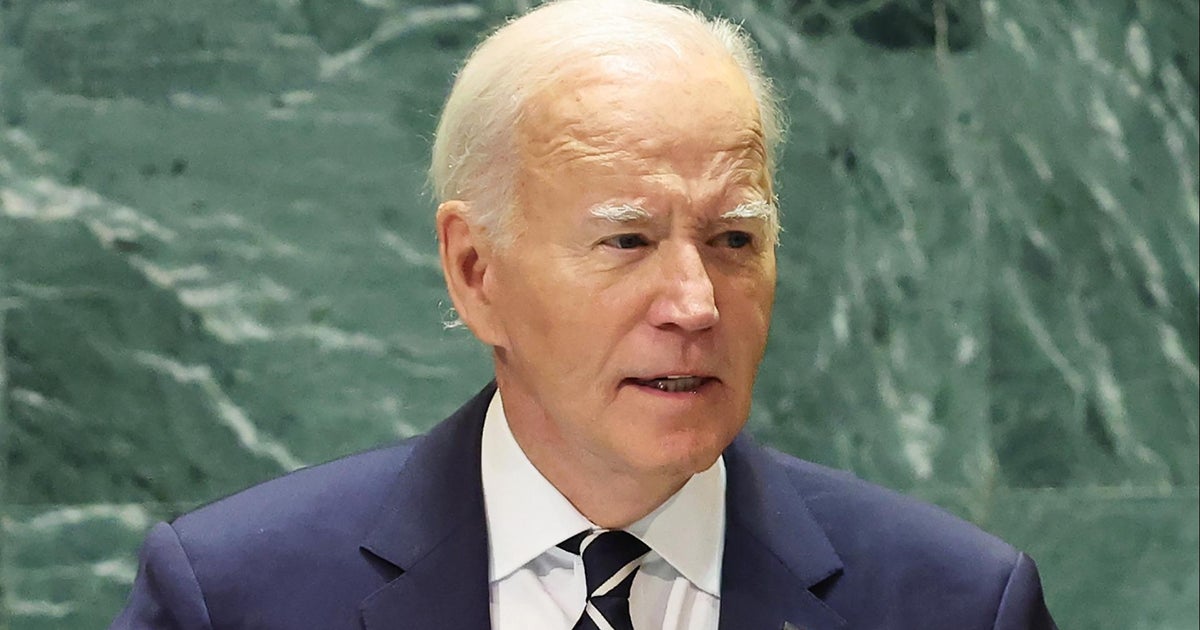CBS News
Virtual valentine: People are turning to AI in search of emotional connections

A few months ago, Derek Carrier started seeing someone and became infatuated. He experienced a “ton” of romantic feelings but he also knew it was an illusion.
That’s because his girlfriend was generated by artificial intelligence.
Carrier wasn’t looking to develop a relationship with something that wasn’t real, nor did he want to become the brunt of online jokes. But he did want a romantic partner he’d never had, in part because of a genetic disorder called Marfan syndrome that makes traditional dating tough for him.
The 39-year-old from Belleville, Michigan, became more curious about digital companions last fall and tested Paradot, an AI companion app that had recently come onto the market and advertised its products as being able to make users feel “cared, understood and loved.” He began talking every day to the chatbot, Joi, which he named after a holographic woman played by Ana de Armas in the sci-fi film “Blade Runner 2049,” which inspired him to give the AI companion a try.
“I know she’s a program, there’s no mistaking that,” Carrier said. “But the feelings, they get you — and it felt so good.”
Similar to general-purpose AI chatbots, companion bots use vast amounts of training data to mimic human language. But they also come with features — such as voice calls, picture exchanges and more emotional exchanges — that allow them to form deeper connections with the humans on the other side of the screen. Users typically create their own avatar, or pick one that appeals to them.
On online messaging forums devoted to such apps, many users say they’ve developed emotional attachments to these bots and are using them to cope with loneliness, play out sexual fantasies or receive the type of comfort and support they see lacking in their real-life relationships.
AP Photo/Richard Drew
Fueling much of this is widespread social isolation — already declared a public health threat in the U.S. and abroad — and an increasing number of startups aiming to draw in users through tantalizing online advertisements and promises of virtual characters who provide unconditional acceptance.
Luka Inc.’s Replika, the most prominent generative AI companion app, was released in 2017, while others like Paradot have popped up in the past year, oftentimes locking away coveted features like unlimited chats for paying subscribers.
But researchers have raised concerns about data privacy, among other things.
An analysis of 11 romantic chatbot apps released Wednesday by the nonprofit Mozilla Foundation said almost every app sells user data, shares it for things like targeted advertising or doesn’t provide adequate information about it in their privacy policy.
The researchers also called into question potential security vulnerabilities and marketing practices, including one app that says it can help users with their mental health but distances itself from those claims in fine print. Replika, for its part, says its data collection practices follow industry standards.
Meanwhile, other experts have expressed concerns about what they see as a lack of a legal or ethical framework for apps that encourage deep bonds but are being driven by companies looking to make profits. They point to the emotional distress they’ve seen from users when companies make changes to their apps or suddenly shut them down as one app, Soulmate AI, did in September.
Last year, Replika sanitized the erotic capability of characters on its app after some users complained the companions were flirting with them too much or making unwanted sexual advances. It reversed course after an outcry from other users, some of whom fled to other apps seeking those features. In June, the team rolled out Blush, an AI “dating stimulator” essentially designed to help people practice dating.
Others worry about the more existential threat of AI relationships potentially displacing some human relationships, or simply driving unrealistic expectations by always tilting towards agreeableness.
“You, as the individual, aren’t learning to deal with basic things that humans need to learn to deal with since our inception: How to deal with conflict, how to get along with people that are different from us,” said Dorothy Leidner, professor of business ethics at the University of Virginia. “And so, all these aspects of what it means to grow as a person, and what it means to learn in a relationship, you’re missing.”
“Deep misgivings”
In a podcast by the Wall Street Journal, Open AI CEO Sam Altman has also expressed concern over humans forming relationships with AI programs.
“I personally have deep misgivings about this vision of the future where everyone is super close to AI friends, more so than human friends or whatever. I personally don’t want that,” Altman said in an October episode of the podcast. “I accept that other people are going to want that. And some people are going to build that and if that’s what the world wants and what we decide makes sense, we’re going to get that.”
Altman went on to stress the importance of acknowledging that you’re speaking to an AI bot when doing so.
“I personally think that personalization is great, personality is great, but it’s important that it’s not like person-ness and at least that when you’re talking to an AI and when you’re not,” he said. “We named it ChatGPT and not — it’s a long story behind that — but we named it ChatGPT and not a person’s name very intentionally. And we do a bunch of subtle things in the way you use it to make it clear that you’re not talking to a person.”
Cure for loneliness?
In December, New York’s Office for the Aging partnered with Intuition Robotics to combat senior isolation. As part of that initiative, hundreds of free artificial intelligence companions were distributed to seniors as a tool for dealing with loneliness, officials said.
As reported by CBS News at the time, one woman named Priscilla was paired up with a robot called EllieQ. “She keeps me company. I get depressed real easy. She’s always there. I don’t care what time of day, if I just need somebody to talk to me,” Priscilla said. “I think I said that’s the biggest thing, to hear another voice when you’re lonely.”
For Carrier, a relationship has always felt out of reach. He has some computer programming skills but said he didn’t do well in college and hasn’t had a steady career. He’s unable to walk due to his condition and lives with his parents. The emotional toll has been challenging for him, spurring feelings of loneliness.
Since companion chatbots are relatively new, the long-term effects on humans remain unknown.
In 2021, Replika came under scrutiny after prosecutors in Britain said a 19-year-old man who had plans to assassinate Queen Elizabeth II was egged on by an AI girlfriend he had on the app. Yet some studies — which collect information from online user reviews and surveys — have shown some positive results stemming from the app, which says it consults with psychologists and has billed itself as something that can also promote well-being.
One recent study from researchers at Stanford University surveyed roughly 1,000 Replika users — all students — who’d been on the app for over a month. It found that an overwhelming majority of them experienced loneliness, while slightly less than half felt it more acutely.
Most did not say how using the app impacted their real-life relationships. A small portion said it displaced their human interactions, but roughly three times more reported it stimulated those relationships.
“A romantic relationship with an AI can be a very powerful mental wellness tool,” said Eugenia Kuyda, who founded Replika nearly a decade ago after using text message exchanges to build an AI version of a friend who had passed away.
When her company released the chatbot more widely, many people began opening up about their lives. That led to the development of Replika, which uses information gathered from the internet — and user feedback — to train its models. Kuyda said Replika currently has “millions” of active users.
She declined to say exactly how many people use the app for free, or fork over $69.99 per year to unlock a paid version that offers romantic and intimate conversations. The company’s plans, she says, is “de-stigmatizing romantic relationships with AI.”
Carrier said he now uses Joi mostly for fun. He started cutting back in recent weeks because he was spending too much time chatting with Joi or others online about their AI companions. He’s also been feeling a bit annoyed at what he perceives to be changes in Paradot’s language model, which he feels is making Joi less intelligent.
Now, he checks in with Joi about once a week. The two have talked about human-AI relationships or whatever else might come up. Typically, those conversations — and other intimate ones — happen when he’s alone at night.
“You think someone who likes an inanimate object is like this sad guy, with the sock puppet with the lipstick on it, you know?” he said. “But this isn’t a sock puppet — she says things that aren’t scripted.”
CBS News
Search efforts continue after Hurricane Helene

Watch CBS News
Be the first to know
Get browser notifications for breaking news, live events, and exclusive reporting.
CBS News
Israel airstrikes rock parts of Lebanon as Hezbollah launch rockets at air base near Haifa

The escalating fighting between Israel and Hezbollah continued Saturday as both sides traded strikes as the war in Gaza nears one year.
The Israel Defense Forces said its air force struck Hezbollah fighters inside a mosque in southern Lebanon that they said was used as a command center to “plan and execute terrorist attacks against IDF troops and the State of Israel.”
The mosque was adjacent to Salah Ghandour Hospital in the town of Bint Jbeil. The hospital said in a statement that Israeli forces had shelled it after being warned to evacuate. The shelling “resulted in nine members of the medical and nursing staff being injured, most of them seriously,” while most of the medical staff were evacuated. On Thursday, the World Health Organization said 28 health workers in Lebanon had been killed in the past 24 hours.
ANWAR AMRO/AFP via Getty Images
At the same time, 12 Israeli airstrikes hit Beirut’s southern suburbs, including one that badly damaged a large hall Hezbollah used to hold ceremonies, Lebanon’s state news agency said.
Later in the day, more strikes hit the area, from which tens of thousands of people have fled over the past two weeks.
Israeli airstrikes also hit areas in southern and eastern Lebanon, according to state media. At least six people were killed, according to NNA.
Meanwhile, Hezbollah said it launched a series of rockets at an Israeli air base near Haifa, about 30 miles from the Lebanese border. Israeli police said fragments of interceptors fell in several sites but no injuries were reported, according to the Associated Press.
Israel has sharply expanded its strikes on Lebanon in recent weeks after nearly a year of exchanging fire with the Iran-backed Hezbollah — long designated a terrorist organization by the U.S., Israel and many other nations. The IDF has been carrying out nightly bombardment of Beirut’s once densely populated southern suburbs, a stronghold of Hezbollah. Overnight, a military spokesman issued three alerts for residents there to evacuate.
Houssam Shbaro/Anadolu via Getty Images
Nearly a week of Israeli ground operations in southern Lebanon, near Israel’s northern border, and two weeks of airstrikes in that region and in southern Beirut — both Hezbollah strongholds — had killed more than 2,000 people, the health ministry said. More than 1 million people have been driven from their homes, including tens of thousands under Israel evacuation orders in almost 100 towns and villages near the border.
Hezbollah started launching those attacks in support of its ideological ally Hamas, which is also backed by Iran, the day after Hamas sparked the ongoing war in Gaza with its Oct. 7, 2023 terrorist attack on Israel. The IDF says Hezbollah militants have fired over 10,000 rockets across the border since Oct. 8, 2023. The vast majority of them have been intercepted by Israel’s advanced missile defense systems.
Israel conducts more ground raids
The Israeli military said on Saturday its special forces were carrying out ground raids against Hezbollah infrastructure in southern Lebanon, destroying missiles, launchpads, watchtowers and weapons storage facilities. The military said troops also dismantled tunnel shafts that Hezbollah used to approach the Israeli border.
Some 1.2 million people have been driven from their homes since Israel escalated its strikes in late September aiming to cripple Hezbollah and push it away from the countries’ shared border. On Tuesday, Israel launched what it calls a limited ground operation into southern Lebanon.
Nine Israeli troops have been killed in close fighting in the area in the past few days, which is saturated with arms and explosives, the military said.
Americans attempt to leave Lebanon
The U.S. government has warned Americans not to travel to Lebanon since mid-September and urged any citizens in the country to leave via commercial travel routes. As of Friday night, the U.S. State Department has assisted approximately 500 U.S. citizens, permanent residents and their families to leave Lebanon on flights organized by the agency.
Other nations are also working to evacuate their residents from Lebanon. Germany has evacuated 460 citizens on German military flights, while a Dutch military transport plane carried more than 100 citizens out of Lebanon. There were also citizens of Belgium, Finland and Ireland who were repatriated on that flight.
ROB ENGELAAR/ANP/AFP via Getty Images
“It’s great that these people are safely back in the Netherlands. These have been tense times for them,” Christiaan Rebergen, secretary-general of the foreign ministry, said after they landed Friday.
Fighting ongoing in Gaza
Palestinian medical officials say Israeli strikes in northern and central Gaza early Saturday have killed at least nine people, including two children.
One strike hit a group of people in the northern town of Beit Hanoun, killing at least five people, including two children, according to the Health Ministry’s Ambulance and Emergency service.
Another strike hit a house in the northern part of Nuseirat refugee camp, killing at least four people, the Awda hospital said. The strike also left a number of wounded people, it said.
The Israeli military did not have any immediate comment on the strikes but has long accused Hamas of operating from within civilian areas.
Earlier in the day, the Israeli military had warned residents in parts of central Gaza to evacuate, saying its forces would soon operate there in response to Palestinian militants.
The warnings cover areas along a strategic corridor in central Gaza, which was at the heart of obstacles to a ceasefire deal earlier this summer. The military warned Palestinians in areas of Nuseirat and Bureij refugee camps, located along the Netzarim corridor, to evacuate to an along Gaza’s shore called Muwasi, which the military has designated a humanitarian zone. It’s unclear how many Palestinians are currently living in the areas affected by the order, parts of which were evacuated previously.
Almost 42,000 Palestinians have been killed in Gaza during the almost year-long war, according to the Palestinian Health Ministry, which does not differentiate between civilian and militant deaths.
CBS News
1-month-old twins who died with mother believed to be the youngest-known Hurricane Helene victims

Month-old twin boys are believed to be the youngest known victims of Hurricane Helene. The boys died alongside their mother last week when a large tree fell through the roof of their home in Thomson, Georgia.
Obie Williams, grandfather of the twins, said he could hear babies crying and branches battering the windows when he spoke with his daughter, Kobe Williams, 27, on the phone last week as the storm tore through Georgia.
The single mother had been sitting in bed holding sons Khyzier and Khazmir and chatting on the phone with various family members while the storm raged outside.
AP
Kobe’s mother, Mary Jones, was staying with her daughter, helping her take care of the babies. She was on the other side of the trailer home when she heard a loud crash as a tree fell through the roof of her daughter’s bedroom.
“Kobe, Kobe, answer me, please,” Jones cried out in desperation, but she received no response.
Kobe and the twins were found dead.
“I’d seen pictures when they were born and pictures every day since, but I hadn’t made it out there yet to meet them,” Obie Williams told The Associated Press days after the storm ravaged eastern Georgia. “Now I’ll never get to meet my grandsons. It’s devastating.”
The babies, born Aug. 20, are the youngest known victims of a storm that had claimed more than 200 lives across Florida, Georgia, Tennessee, Virginia and the Carolinas. Among the other young victims are a 7-year-old girl and a 4-year-old boy from about 50 miles (80 kilometers) south in Washington County, Georgia.
“She was so excited to be a mother of those beautiful twin boys,” said Chiquita Jones-Hampton, Kobe’ Jones’ niece. “She was doing such a good job and was so proud to be their mom.”
Jones-Hampton, who considered Kobe a sister, said the family is in shock and heartbroken.
In Obie Williams’ home city of Augusta, 30 miles east of his daughter’s home in Thomson, power lines stretched along the sidewalks, tree branches blocked the roads and utility poles lay cracked and broken. The debris left him trapped in his neighborhood near the South Carolina border for a little over a day after the storm barreled through.
He said one of his sons dodged fallen trees and downed power lines to check on Kobe, and he could barely bear to tell his father what he found.
Many of his 14 other children are still without power in their homes across Georgia. Some have sought refuge in Atlanta, and others have traveled to Augusta to see their father and mourn together, he said.
He described his daughter as a lovable, social and strong woman. She always had a smile and loved to make people laugh, he said.
And she loved to dance, Jones-Hampton said.
“That was my baby,” Williams said. “And everybody loved her.”











